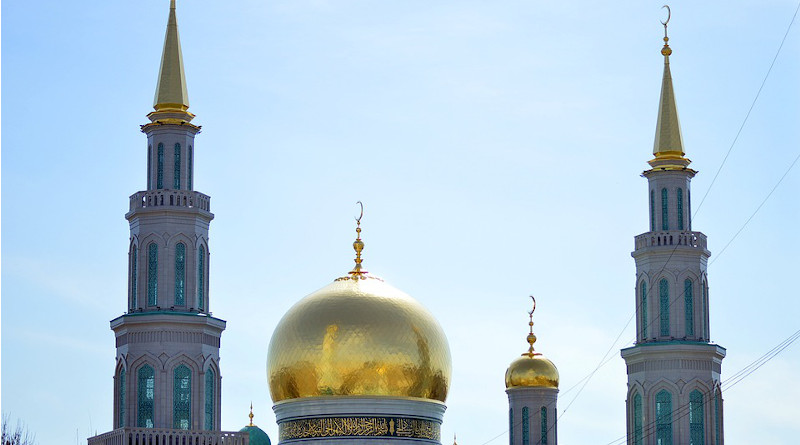Russia’s Muslims And Buddhists Want Public Holidays For Their Faiths Too
By Paul Goble
Now that the Russian Duma has approved the Day of the Baptism of Rus’ as a public holiday, leaders of Russia’s Islamic and Buddhist communities say they want their faiths to be recognized in the same way, yet another example of the way in which Moscow’s efforts to use Orthodoxy to unite the country in fact is dividing them.
Wednesday, the Federation Council gave its approval to the bill, earlier passed by the Duma to make the Day of the Baptism of Rus’ a public holiday to be marked in Russia each year on July 28th. That date thus becomes the ninth such holiday in the post-Soviet Russian calendar, but its appearance has sparked demands from other religions for still more.
After the Federation Council voted, Amir Gallyamov, the senator from the Amur oblast, proposed creating another holiday for the Day of the Adoption of Islam, and Buddhists, especially in Kalmykia, suggested that they should have a similar public holiday for their faith. If that happens, these would be the 10th and 11th such holidays.
Gallyamov justified his call by pointing out that Islam had been adopted on the territory of the Russian Federation “66 years” earlier than Orthodoxy was and that it thus deserves a holiday. Federation Council Speaker Sergey Mironov agreed, saying that it would only be fair to take such a step.
Today, the “Svobodnaya pressa” portal published a survey of the reactions of various religious leaders to all these ideas, reactions that suggest the adoption of a Christian holiday in a country with many religions and whose Constitution defines it as a secular state is fraught with dangers (svpressa.ru/society/article/25705/).
Geydar Dzhemal, the outspoken president of the Islamic Committee of Russia, said that adopting a Russian state holiday for Muslims was “absolutely justified and logical. More than that,” he continued, “to ignore this demand would mean offending Muslims.” In a country like Russia, he said, “there must be parity.”
Moreover, Dzhemal argued, “the baptism of Rus,” unlike the acceptance of Islam by the leaders of the Bulgar State, whose territories were subsequently incorporated into Russia, “took place on territories which now belong to another state,” that is to Kyiv in the Republic of Ukraine.
If Moscow creates a holiday for Christians but not for Muslims, he continued, “this will underscore what Muslims already feel, that they are second-class citizens and marginals.” And that in turn will generate a sense among them that they must “change the situation at any price.” If democracy doesn’t work to achieve that end, he said, then they will use “force.”
Asked about the two other so-called “traditional” religions of Russia – Judaism and Buddhism – Dzhemal said that “it is possible to derive the [Jewish] tradition from the Khazar kaganate,” but that state was “an enemy of Rus and Rus defeated it.” In fact, he continued, Jews “arrived in Russia” much later.
As far as Buddhism is concerned, the Muslim activist continued, “it never was a state religion in Russia,” while “Islam was a religion of a sovereign subject of international law, Volga Bulgaria. And if one takes Daghestan into consideration, then it was adopted there still earlier, and there too were state formations.”
Given that religious history, he concluded, the Russian state could be completely neutral if it did not celebrate as a public holiday any religious event. But if it celebrates the holiday of one, as Moscow clearly intends, then Dzhemal concluded, it must mark the holidays of all the other major ones.
Konstantin Bendas, a representative of the Protestant Pentacostals, told “Svobodnaya pressa” that he did not see any need for a “Protestant” public holiday in Russia, and Kapiton Alekseyev, an Old Believer pastor in Moscow oblast, said that he did not even want to talk about the possibility of such a linking of the state and any religion.
Meanwhile, Drikung Kag’yu, a representative of the Buddhist Center, said that “justice requires” creating a public holiday for Russian Buddhists now that one has been created for Russian Orthodox Christians. He said that the best date for that would be May 27th, the birthday of Buddha. That date, he pointed out, is already marked in Kalmykia and Buryatia.

